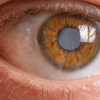When it comes to cataracts, delaying treatment or failing to recognize the signs might have negative consequences. Cataracts are a leading cause of visual impairment and blindness if not properly treated. They can develop thicker and darker with time, which might increase surgical difficulties and prolong the recovery period. If your symptoms are minimal, you…










